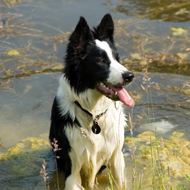Reaction to Nobivac L4 article

The VMD advises vets to make a clinical judgement about the benefits of Nobivac L4 to the individual dog.
The VMD, WSAVA and MSD Animal Health have responded to a recent Daily Telegraph article which claimed 'thousands' of dogs in Britain are reported to be dying or suffering severe allergic reactions after receiving the Nobivac L4 vaccine.
Published online on Saturday (2 July), the article stated that, according to reports made to the Veterinary Medicines Directorate (VMD) by pet owners: 'More than 120 dogs are feared to have died after receiving a dosage in the three years the product has been on the market. In the last two years, regulators have received 2,000 reports of dogs having suspected adverse or fatal reactions.'
Responding, the VMD said the incidence of adverse reactions to Nobivac L4 is 0.064 per cent. Or, in other words, for every 10,000 doses administered, the VMD has received six adverse reactions. The overall incidence is therefore classed as 'rare' by regulatory authorities.
According to the VMD, the majority of the most commonly reported clinical signs are linked to allergic type reactions, which are recognised as potential side effects of any vaccine, and warnings are included in the product information.
'It is important to note, as vaccination against leptospirosis rarely occurs in isolation it is very difficult to interpret which adverse reactions are attributable to Leptospira vaccines,' the directorate said in a statement. 'Many vaccines providing protection against leptospirosis also contain components for prevention of other diseases, such as distemper, parainfluenza and parvovirus.
'In addition, many dogs are vaccinated concurrently against other diseases, such as kennel cough and/or rabies, and other products (e.g flea and worm treatments) may be administered at the same visit. Therefore the clinical signs observed may be related to any of the products used or they may be unrelated.'
MSD Animal Health, which manufactures the vaccine, was more recently asked to add additional warnings to the product information, to state that, in very rare cases, there have been reports of immune-mediated reactions, including immune-mediated haemolytic anaemia, immune-mediated thrombocytopenia and immune-mediated polyarthritis.
The Daily Telegraph article also claimed that the World Small Animal Veterinary Association (WSAVA) 'is urging owners not to use Nobivac L4 vaccine on puppies under 12 weeks old.'
In a statement, WSAVA called the claims 'blatantly untrue'.
'The WSAVA would never "urge owners" and would never make recommendations about individual named commercial products...' it said.
'The current 2015 WSAVA recommendation for Leptospira vaccines is that when these non-core vaccines are chosen for an individual dog (on the basis of national or regional knowledge about the prevalence and risks of leptospirosis) they should be given from 8 weeks of age in puppies, with a second dose 2-4 weeks later and then an annual booster vaccine.
'On the subject of generic L2 versus L4 vaccines, the VGG states that "When a Leptospira vaccine is used in high risk dogs, the commercial vaccine that contains all of the serogroups that cause disease in the dog in that region, if available, should be used.'
Following the article, the VMD said it does not currently intend to remove the vaccine from the market but is working closely with the European Medicines Agency, other European agencies and the marketing authorisation holder to assess the data and the benefit versus risk balance of the product.
Meanwhile, the VMD advises vets to 'make a clinical judgement of the benefits for an individual dog, based on their knowledge of the local epidemiological situation and risk of leptospirosis, versus the potential risks as outlined in the product information before administering a vaccine.
'Careful consideration should be given as to whether the additional protection provided by vaccines containing four serovars of Leptospira versus those containing two are necessary in each individual dog, depending on their individual circumstances.'
MSD Animal Health commented: 'As a responsible animal health company, we take every adverse reaction report seriously and investigate thoroughly. Whenever possible, we work with the pet owner and attending veterinary surgeon to assemble as much clinical information as we can to help determine the cause of a pet's health issue, and whether or not the product may have been involved. The overall frequency of all pharmacovigilance reports received for this product is what regulatory authorities classify as "rare"'.
Vets are encouraged to report any adverse events associated with use of Nobivac L4 to the VMD using its online reporting form: https://www.gov.uk/report-veterinary-medicine-problem, or directly to MSD Animal Health.



 The veterinary mental health charity Vetlife is inviting the veterinary community to join it for a sponsored cold-water dip.
The veterinary mental health charity Vetlife is inviting the veterinary community to join it for a sponsored cold-water dip.